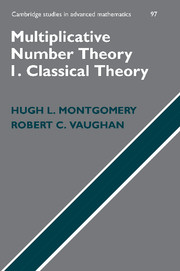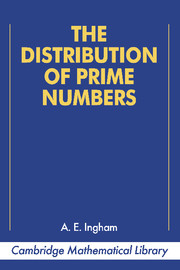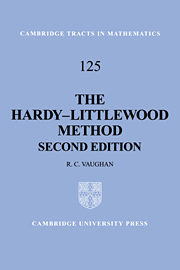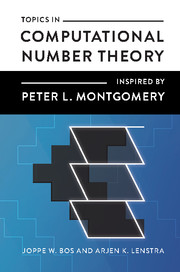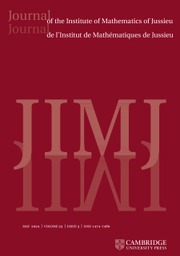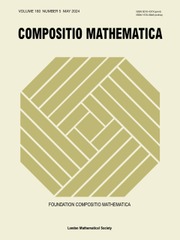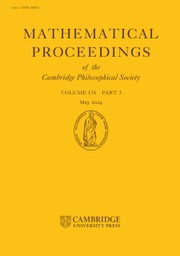Multiplicative Number Theory I
Prime numbers are the multiplicative building blocks of natural numbers. Understanding their overall influence and especially their distribution gives rise to central questions in mathematics and physics. In particular, their finer distribution is closely connected with the Riemann hypothesis, the most important unsolved problem in the mathematical world. This book comprehensively covers all the topics met in first courses on multiplicative number theory and the distribution of prime numbers. The text is based on courses taught successfully over many years at the University of Michigan, Imperial College, London and Pennsylvania State University.
- Large collection of stimulating problems associated with each section
- Extensive references to both historical background and further development of subject
- Based extensively on the material used successfully at the University of Michigan, Imperial College London, and Penn State University
Reviews & endorsements
"The monograph is a very readable, concise presentation of classical prime number theory, giving techniques as well as the underlying ideas, and describing an incredibly large range of topics. A study of this monograph seems to be a must for every number theorist. Hopefully this volume will be available as soon as possible, to renew and broaden the interest in this highly interesting field of analytic prime number theory."
Wolfgang Schwarz, Mathematical Reviews
Product details
July 2012Paperback
9781107405820
572 pages
229 × 152 × 32 mm
0.83kg
Available
Table of Contents
- Preface
- Notation
- 1. Dirichlet series-I
- 2. The elementary theory of arithmetic functions
- 3. Principles and first examples of sieve methods
- 4. Primes in arithmetic progressions-I
- 5. Dirichlet series-II
- 6. The prime number theorem
- 7. Applications of the prime number theorem
- 8. Further discussion of the prime number theorem
- 9. Primitive characters and Gauss sums
- 10. Analytic properties of the zeta function and L-functions
- 11. Primes in arithmetic progressions-II
- 12. Explicit formulae
- 13. Conditional estimates
- 14. Zeros
- 15. Oscillations of error terms
- Appendix A. The Riemann-Stieltjes integral
- Appendix B. Bernoulli numbers and the Euler-MacLaurin summation formula
- Appendix C. The gamma function
- Appendix D. Topics in harmonic analysis.

